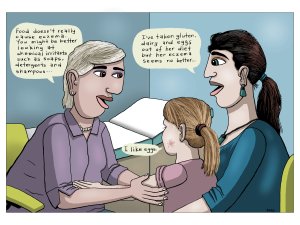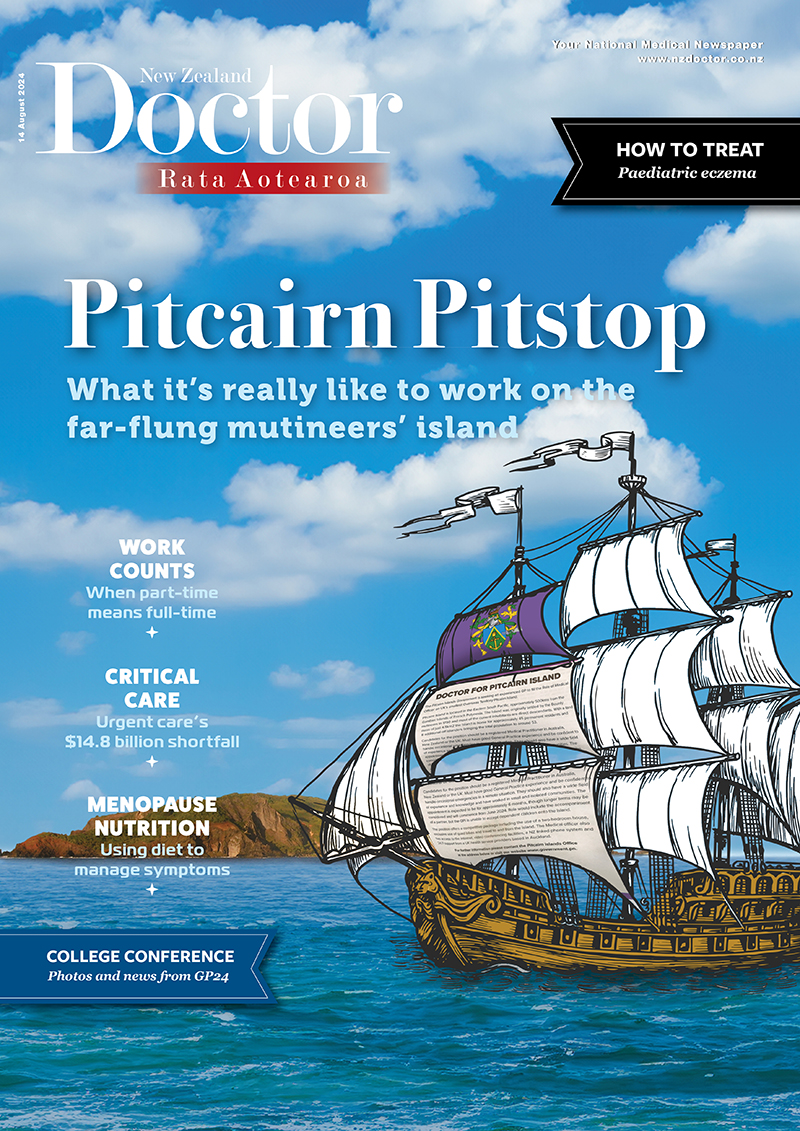Specialist GP Nikki Vadgama provides some tips to make your next paediatric eczema consult easier. She includes a review of new guidelines, resources, websites and medications for paediatric eczema management
Rival unions for teachers, nurses and doctors launched by anti-vaccine figures
Rival unions for teachers, nurses and doctors launched by anti-vaccine figures

- Rival unions are being set up for teachers, nurses and doctors in New Zealand.
- Names in the anti-mandate and anti-vaccination movement are behind them.
- Three of the groups are backed by Australian groups denounced as “fake unions.
Key figures in the anti-vaccination movement are behind new unions for teachers, nurses and doctors - with substantial online recruitment campaigns saying they offer a much cheaper alternative to established unions.
The teacher’s group, named the Teachers’ Professional Association of New Zealand (TPANZ), has already run recruitment sessions in several senior school staff rooms.
However, members of the new unions would have to leave existing collective bargaining agreements and move to individually-negotiated contracts, as none of the groups have negotiating arrangements with the ministries of Education and Health.
The three groups have the backing of an Australian movement, ‘Red Unions’, which were denounced by the Australian Council of Trade Unions in 2021 as “fake unions”.
While the three have registered as official trade unions, none are part of the New Zealand Council of Trade Unions.
Chris Dekker, secretary of the nurses union NPANZ, said the three unions had collectively already recruited 500 members.
TPANZ made a visit to the staffroom of Wellington College to recruit teachers there. One teacher said: “I thought it looked too good to be true. I Googled them and found out they were anti-mandate. I hope they were brought in unwittingly. I’m not sure people would want to join if they know they would have to go on individual contracts and not collective agreements.”
Wellington College principal Glen Denham confirmed the visit, but said: “There was no presentation and there was a very small number of staff members there having lunch. We have no relationship with TPANZ. I think our teachers are very happy with the representation that they get with the PPTA [Post-Primary Teachers’ Association].”
As a registered union, TPANZ has a legal right to make recruitment visits.
PPTA president Chris Abercrombie said he’d heard of four schools that had received visits from the organisation.
The three unions are also paying for programmatic advertising. In starting to research this story, the reporter was served advertisements on leading news websites in New Zealand and Australia. An analysis of Facebook data shows all three began advertising campaigns on Facebook and Instagram in December and January.
The unions’ websites say their advantages are cheaper fees, no political party contributions, a “union run by workers not union officials” and workplace issues “resolved in a consultative manner”.
Dekker, in a statement on behalf of the three unions, said they were “significantly cheaper” because of a constitutional ban on party support and not campaigning on issues “extraneous to the profession”. He said their members would save $300 annually on fees and also claimed that nurses and teachers would be able to increase their pay by 20% by “decentralising - putting nurses in charge of hospitals and teachers and parents in charge of schools reducing the need for bureaucrats”.
Dekker said their leadership was “composed of both professional advocates and experienced members of the professions they represent who felt like existing unions have become overtly political on issues that don't concern members and have not served their members' interests well on a range of fronts, including but not limited to during the Covid-19 pandemic”.
Dekker claimed existing unions had not supported their members during the Covid mandates, but “unfortunately we started up too late in NZ to help these workers sue their former union… [but] no issue is too controversial for us. We protect our members.”
Abercrombie, the PPTA president, said he understood TPANZ was a group “mostly motivated by their opposition to the Covid vaccine mandates… it does feel like the horse has bolted a little bit [on that issue]... I’m not sure what problem they are trying to solve?”
Deborah Cunliffe, president of the Nurses’ Professional Association of New Zealand (NPANZ) was involved in the Voices for Freedom and then the Nurses for Freedom movements. It was reported in 2021 that she was no longer a registered nurse but the nursing register shows she is now registered as a practising nurse.
TPANZ’s president is Rachael Mortimer, who in 2021 refused to be vaccinated against Covid-19 and said: “It’s basically 15 years of a career down the drain. Fifteen years of learning the craft of teaching and helping these kids.”
The New Zealand Professional Medical Society president is Alison Goodwin, a Wellington GP suspended by the Medical Council in 2021 for posting videos online and signing an open letter challenging the effectiveness of the vaccine and contradicting Ministry of Health messages of its safety. She took High Court action to overturn the decision.
Goodwin won an appeal against the suspension at the High Court, with judge Kevin Kelly saying that while her communications had contradicted public health advice and directions from the Ministry of Health, her suspension was disproportionate.
To become a registered union, groups must become an incorporated society and provide a statutory declaration explaining why they should be registered.
TPANZ was registered last April as NZ Teachers United. Documents were filed by Queensland Association Services Group Pty, from an address in Bowen Hills, Brisbane, the base of Red Unions. The three unions’ postal address is a mailbox in Parnell.
Red Unions, whose key figures have strong links to the Australian Liberal-National Party, began in 2014 with a nursing group and has expanded into various trades. Because they are not registered unions in Australia, they cannot conduct workplace bargaining. Dekker himself has a LinkedIn page listing him as a full-time Red Unions industrial organiser based in Brisbane.
Abercrombie said he believed TPANZ was not a “homegrown organisation”, but one driven by Australians and said their constitution appeared a “cut and paste” from their Australian equivalent. He said that raised questions about their ability to represent Kiwi teachers. Asked if he considered the groups ‘astroturfing’ - a term to describe the planting of positive messaging online - he said it was heading in that direction.
Abercrombie said the PPTA executive was considering posting information on their website about their rival union, but said he’d not heard of anyone leaving the PPTA for TPANZ and seen no impact on his roughly 22,000-strong membership.
He said TPANZ’s statements about being politically neutral and not making party donations didn’t reflect that the PPTA were both those things. He said he was worried about people joining the three unions and expecting to get the same benefits and pay awards
He said they had the right to recruit and visit staff rooms, but “I just really hope people are thinking about it and aware of what they are joining.”
The New Zealand Nurses Organisation declined an interview and didn’t answer specific questions about the new group but gave a statement from chief executive Paul Goulter, who said his members “by overwhelming majority” supported mandates and believed vaccination was a “professional responsibility” for nurses, and not just for Covid-19. He said “the freedom argument doesn’t apply to vaccines... when the choice not to be vaccinated has serious potential repercussions for the wellbeing of others.”
Stuff spoke to several teachers and nurses who were all unaware of the new groups.
They have yet to enter any formal negotiations with the government that would allow them to bargain on behalf of their members, but Dekker said they would start negotiations as a “matter of priority”.
Asked about TPANZ, a Ministry of Education spokesman said they were “not aware of this group”.
Asked about the other two groups, in a statement, Te Whatu Ora chief people officer Andrew Slater said they were aware of both organisations and that they were registered unions, “but we have no contractual relationship with either.. neither organisation has sought to initiate bargaining with us to date. Were they to do so, we would engage with them in line with our obligations under the Employment Relations Act.”
Through a spokesman, Council of Trade Unions president Richard Wagstaff refused to comment.
- Stuff




